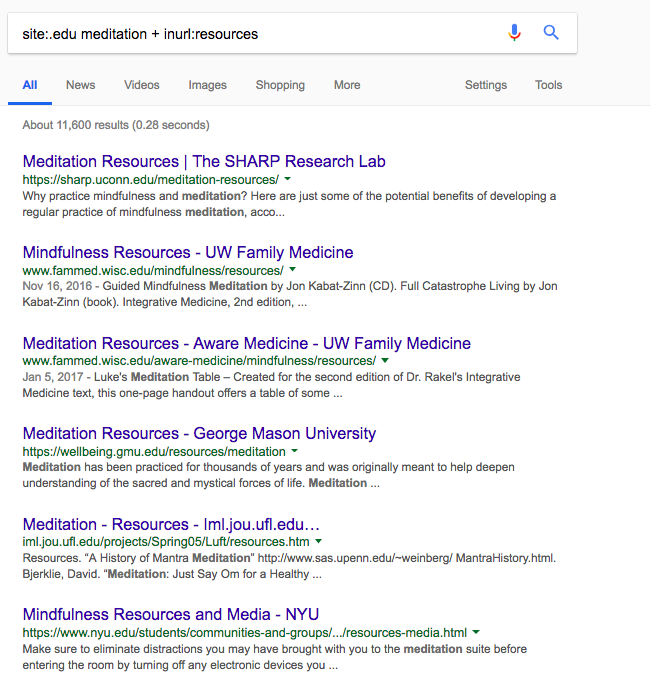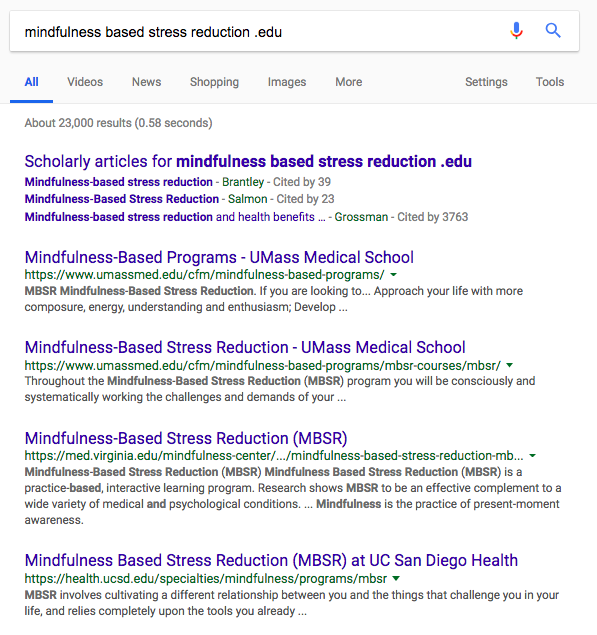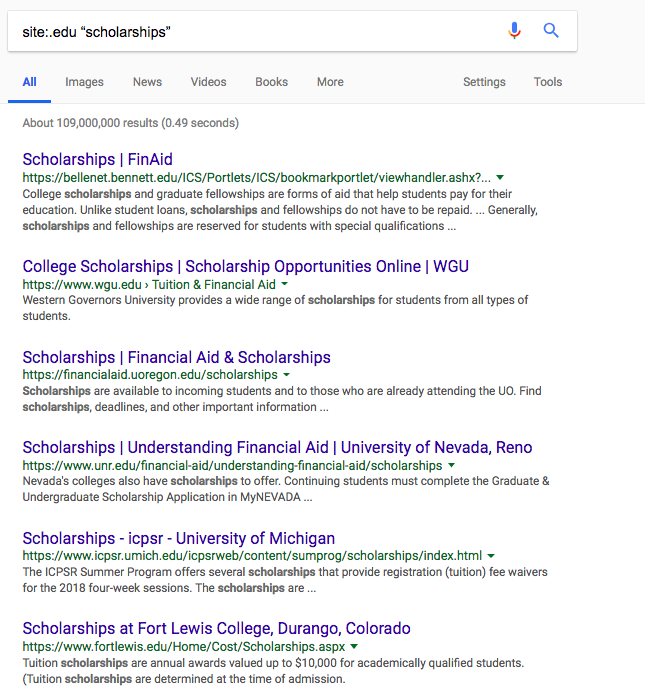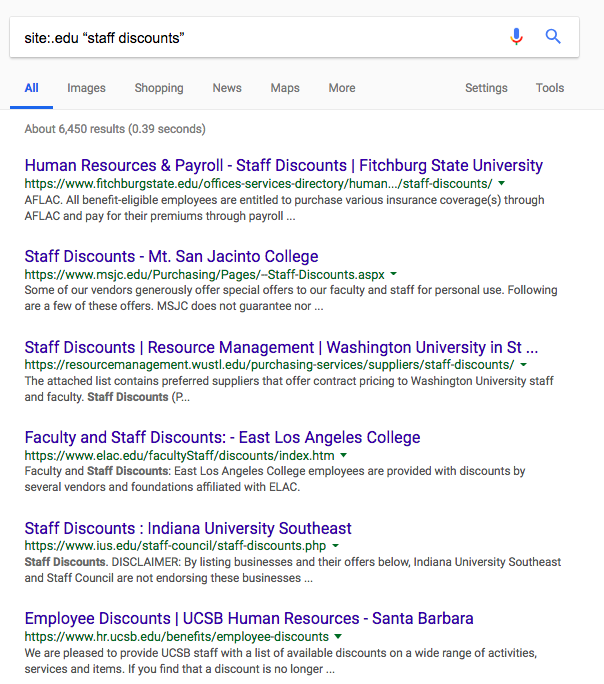
You’re looking to diversify your backlink profile and skyrocket your rankings with some powerful links.
At least, I hope you are!
There’s one kind of link that packs some serious power—the .edu backlink.
Will Google put your site on the first page with nothing but a few .edu links behind thin content? Probably not.
But, do you still want to get as many of these .edu links as possible? Yes.
In a second, we'll talk all about why they're super powerful for SEO and how you can earn some quite easily.
It sounds hard and even a bit exclusive—what if you don't know anyone at colleges? What if your content isn't college material?
Well, for one, .edu backlinks mean more than college (which we'll go into deeper) and it certainly isn’t impossible for you to score them regardless of your niche. It can even be—dare I say it?—easy.
Keep reading to graduate from basic backlinker to seasoned backlink expert!
Why .Edu Backlinks are Powerful
When you’re building backlinks, there are certain qualities you’ll want to look for. Relevant, high Domain Authority, low (or no) Spam Score, high Citation Flow and Trust Flow, yada yada. If you’ve been in the SEO game for any time at all, then you already know this.
It's also the part where you, like anyone working in SEO, brace yourself for all the hard manual work you're going to have to do, looking for good link opportunities and filtering out the bad ones.
Now, here’s the cool part. Most .edu backlinks will check all the boxes required for a high-quality backlink, for example:
- To obtain a .edu domain extension you have to be a certified educational institution (thus making the domain harder to attain and more valuable)
- .Edu domains tend to publish high-quality and authoritative information that Google loves
- Top .edu domains often have tons of links pointing at them, increasing their Domain Authority and Flow scores
- A lot of .edu domains are quite old, which generally means they’ll have more authority and links pointing at the domain
Not every single higher education site will have those traits, of course, but more often than not .edu backlinks pack some serious power.
.Edu Backlinks Don't Just Come from College
When people think .edu backlinks they immediately think college.
Well, luckily for you (and endless hours of frustration), there’s a wide scope of .edu backlinks with link juice to offer via backlinks.
There are tons of different types of schools that have the .edu domain, and many of these aren't too difficult to obtain backlinks from. For example, you’ve got vocational schools, trade schools, continuing education programs, seminaries, conservatories, libraries and more. With the right research and outreach, you can find an .edu page that's related to your niche and successfully request a backlink.
Here are a few examples outside of the typical college spectrum to get your wheels turning:
And that’s just scratching the surface. With a little digging, you can find all kinds of higher education institutions that are related to your niche.
1. Look for Resource Pages
Resource pages can be an absolute goldmine. Not only for obtaining general backlinks but for .edu backlinks as well. These resources pages are just lists of great backlinks relevant to the topics of the website or to the interests of students/teachers.
All it takes is some Google searching to uncover a wealth of niche-specific resource pages that’ll be happy to link to your site.
First, all of this starts with having a quality resource to link out to. The .edu site isn’t going to link out to something that isn’t valuable to their students. Provide something of immense value and you’ve hit a home run.
Here’s how to do it:
Let’s say you’re running a site in the stress-relief and mindfulness space. Most colleges have portions of their sites dedicated to relieving student stress and practicing meditation.
To find these pages we’ll use the following search string:
site:.edu meditation + inurl:resources
And here’s what we get:

Every single one of these sites is worthy of a pitch.
Just create an epic resource and reach out to the university letting them know about your page and how it’ll be valuable to their students.
2. Feed Egos
As humans, we love our egos being stroked and knowing that the work we do has value.
For this strategy, we’re going to look for professors or Ph.D. students who might have sites on an .edu network.
Some professors maintain regular websites that have links out to articles they contributed to or interviews they’ve done.
What we’re going to do here is reach out to them and source their expert opinion on an article topic, or reach out for an interview.
For example:
Let’s say we’re writing a post called, “10 Ways Cognitive Behavioral Therapy Can Improve Your Life.”
We’d seek out those who practice CBT on college campuses and those researching mindfulness-based stress reduction and see if they’d like to contribute to our article.
Using this simple search string gives us what we need:
mindfulness based stress reduction .edu
We get results like these:

Every one of these colleges has program pages, which list professors and their contact information. Start visiting professor bio pages, laboratory pages and student pages if they're available.
Now, it’ll take some digging to uncover those who have personal pages or an online presence at all. But it’ll be well worth it.
Plus, building a relationship at this level could not only lead to a link on their list of interview links, but also a link on their resource page as well.
3. Offer a Scholarship
What’s one way to ensure you get high-quality .edu backlinks?
What kind of college would turn down free money for their students?
In case you didn’t get the hint, we’re talking about creating a scholarship.
Before you go ahead and create a scholarship, we’re going to do some digging into what kind of scholarship we should offer.
Open up Google and type in this search string:
site:.edu “scholarships”
Here’s what we get:

Open up one of the pages and see what kind of scholarships this school links out to. What we’re looking for is a school that lists external scholarships.
For example, here’s what the SOKA University Scholarship page looks like:

Now, scan through the scholarship listings to get a feel for the types of scholarships offered and the total amounts awarded.
Then, create your own scholarship page and get in touch with schools running relevant scholarships to let them know about your award.
4. Pitch or Pay Students with .Edu Blogs
A lot of colleges offer their students the chance to start a blog on their college’s .edu domain.
You can take advantage of this by either networking with or paying students to create a blog post with a link back to your website.
Like most things related to link building, to have success with this method all you have to do is ask.
If you don’t directly know anyone attending college, then consider paying students to create a blog post on their site for you.
Head over to a site like Craigslist or Fiverr and create a listing that entices students to create a blog on their .edu network with a link back to your site. The good thing about this method is you’ll generally have more control over the anchor text of your link.
5. Offer Staff and Student Discounts
We all love getting discounts on products on services we love.
Did you know you could use this to your advantage to find .edu backlinks?
The one caveat of this technique is that you need a tangible product or service you offer that would be attractive to college students or faculty.
A lot of colleges have dedicated pages on their sites that showcase student and faculty discounts.
To find these pages, try out the following search strings:
site:.edu “student discounts”
site:.edu “staff discounts”
A general search will give us results like these:

Open up a few of the pages and see which kind of discounts are featured, then create an offering that would be in alignment with that page.
In some cases, you’ll find a lot of locally-oriented discounts so it can be more effective to reach out to colleges in your local region.
6. Dig Deep for Broken Links
Broken link building can be an incredible way to build backlinks, and this same strategy applies to the .edu space as well.
A lot of college websites aren’t updated as much as they should be. As a result, they’re linking out to outdated pages and pages that might no longer be live on the internet.
This is great news for your site!
The process of swooping up those links is pretty simple.
- Find broken links on .edu pages
- Create something better
- Reach out
- Get the link!
Here’s the strategy in action.
What we’re looking for are pages on college websites that contain outdated links or altogether broken links.
To make this easier we’ll use a Chrome Extension called Check My Links.
Install the extension and head over to any page on a .edu site that’s related to your niche. This could be a blog post or a resource page.
Fire up the tool and you’ll see if there are any broken links you can then recreate, and reach out to the webmaster letting them know that there’s a broken link on the page, and you have the ultimate replacement.
Generally, you can determine what the broken page is about by the hyperlink, but for added context, you can run the broken link through Wayback Machine to get an idea of what the old page was about.
You've got all the right information and techniques!
And hopefully you've been properly motivated to seek out some .edu backlinks.
Now, it’s time to start using the methods above to build your new favorite backlinks.










